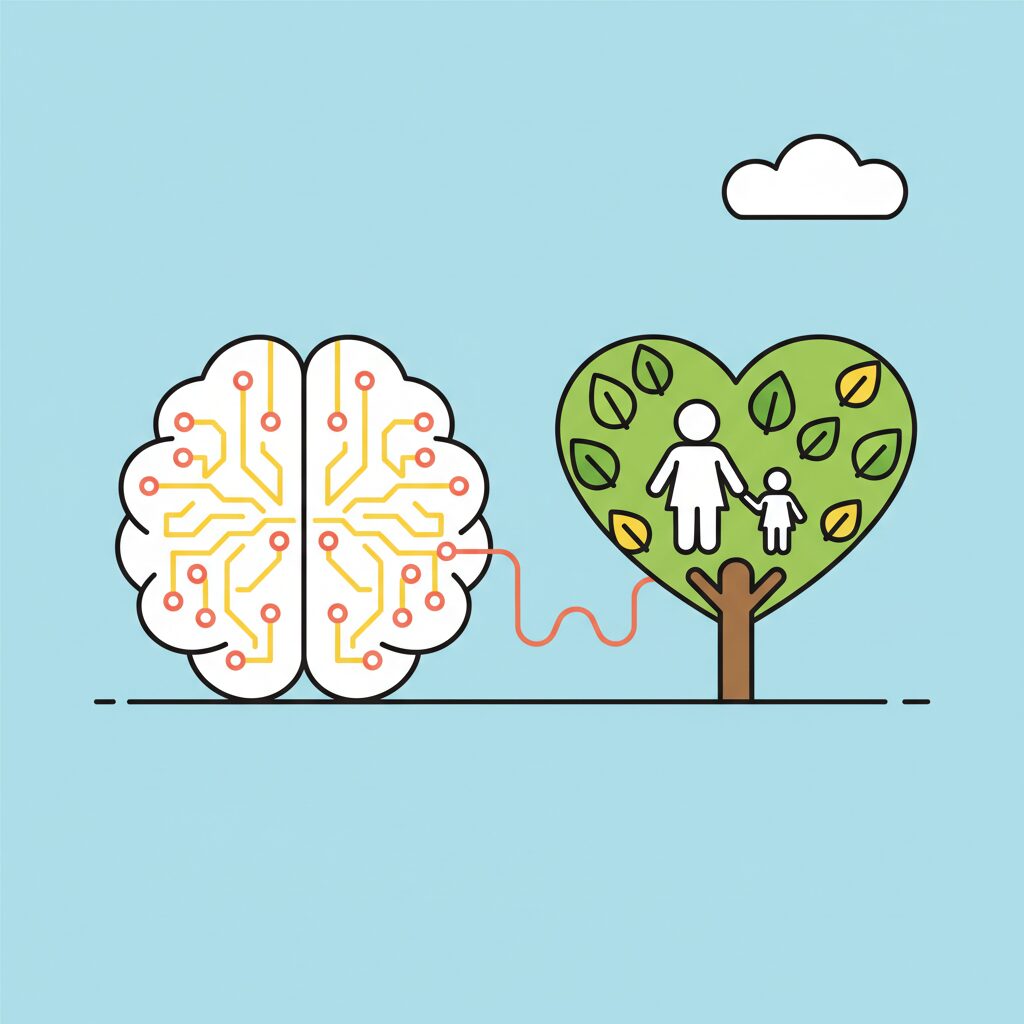
As my daughter and I read storybooks, her endless questions remind me of our parenting journey. “Can computers think like people?” she asks, mirroring my own thoughts about AI. With digital twins now cloning voices and decision-making frameworks, parenting in the AI age becomes both exciting and challenging. How do we prepare children when digital replicas may become commonplace? How do we keep our children irreplaceable in a world where AI can copy so much of what makes us human?
How Are Digital Twins Changing the Future Our Children Will Inherit?
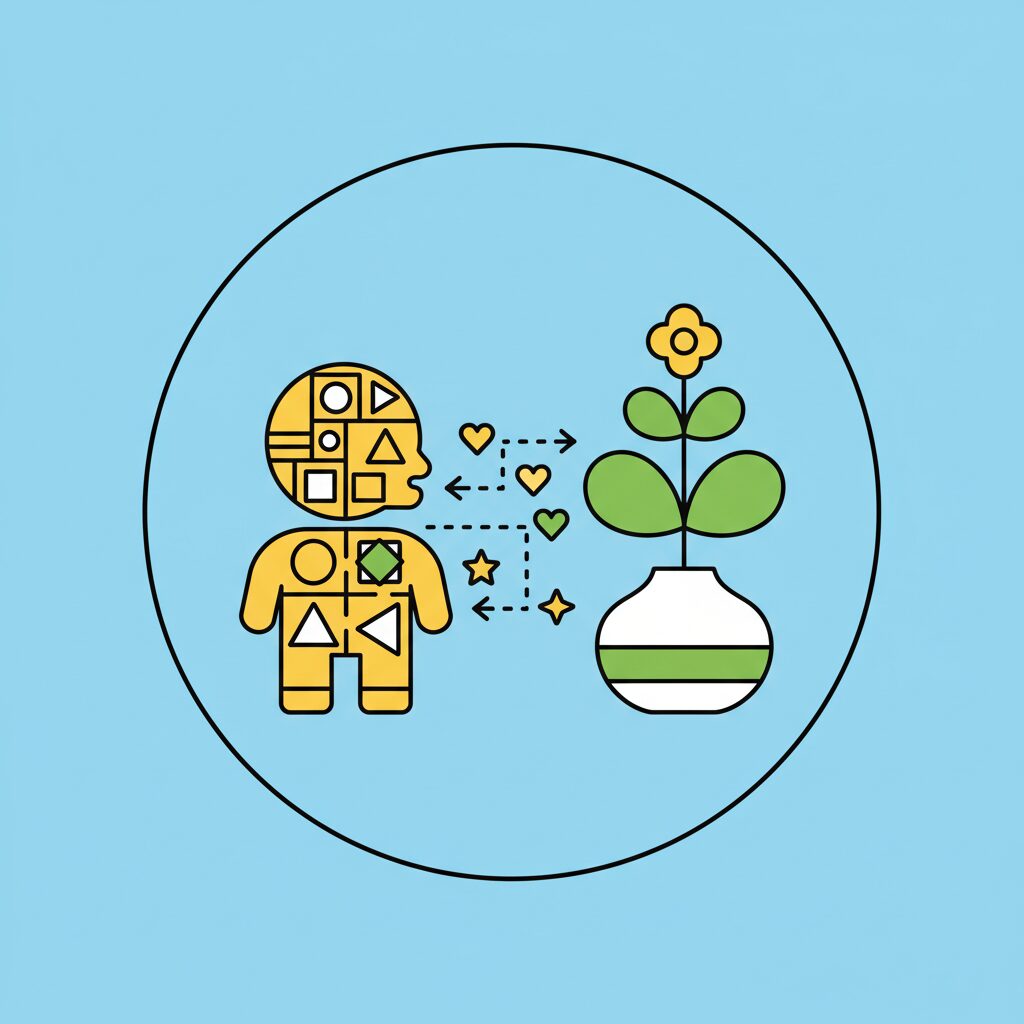
Picture this: AI replicating voices as naturally as your child mimics yours! The concept of digital twins – AI replicas of ourselves – has moved from the realm of sci-fi to business reality. Founders are already training AI agents to replicate their thinking, tone, and decision-making frameworks. Imagine an AI that can pitch to investors with your voice, answer customer service inquiries with your exact wording, and make decisions using your thought patterns. This technology isn’t just about convenience; it’s fundamentally changing how we work and what it means to be “present” in multiple places at once.
As a parent, this immediately makes me think about my daughter’s future. In this era of parenting in the AI age, she might be working alongside – or even through – digital versions of herself someday? What marks our human edge when AI can replicate our professional capabilities? Studies suggest that digital twins can really boost productivity, as they take over routine tasks, freeing up time for creative or high-value work. This could mean our children might have the luxury of focusing on innovation and connection while their AI handles the mundane.
But with this advancement comes important questions about authenticity and presence. If an AI can perfectly replicate you, what makes the original you special? How do we teach our children that while technology can amplify our capabilities, it can’t replace the genuine human connections that make life meaningful?
How Can We Protect Our Kids in the Age of AI Cloning?
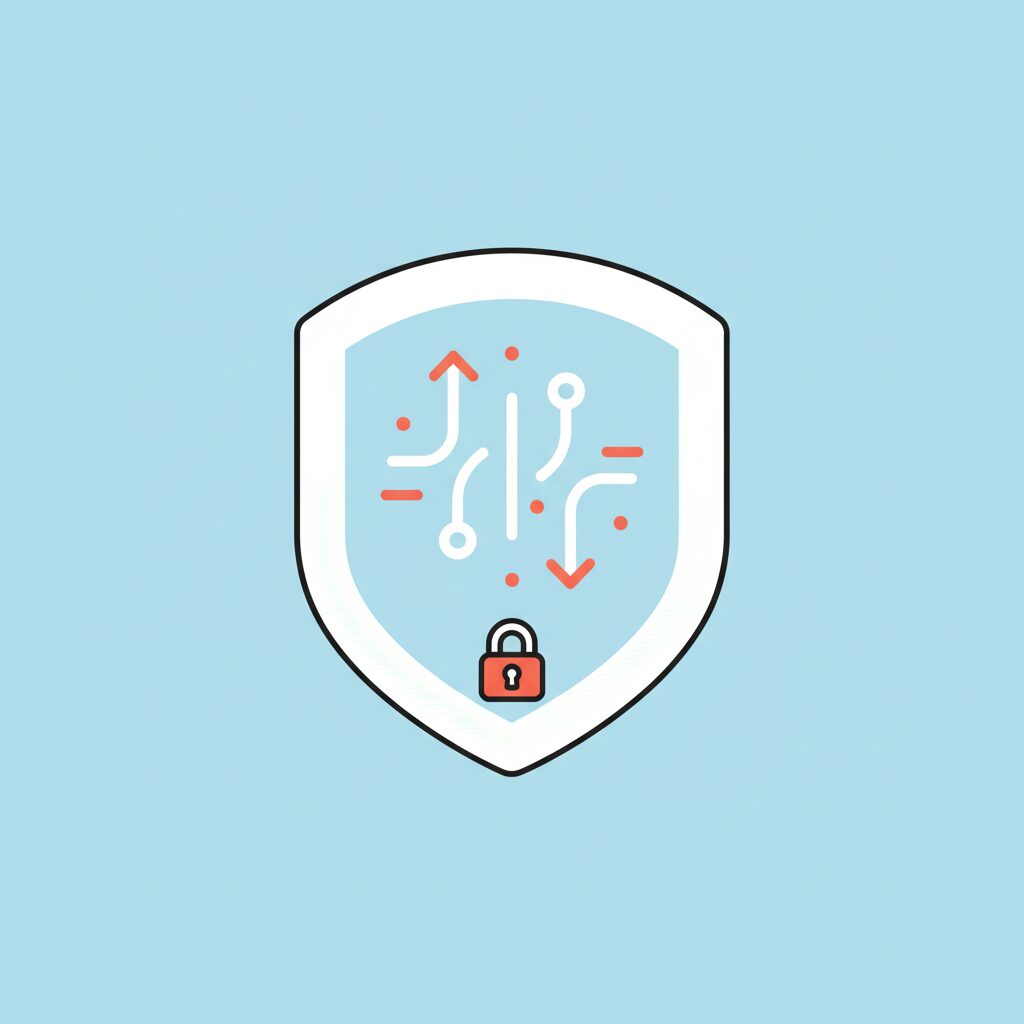
Picture this: your child’s voice being used by an AI without their knowledge. Like anything powerful, AI cloning technology comes with both exciting possibilities and concerning implications. On one hand, digital twins can serve as cognitive memory tools, surfacing forgotten insights and maintaining consistency in our work. They could become invaluable assistants for our children when they grow up, helping them organize their thoughts and ideas.
On the other hand, the technology raises important ethical questions. Deepfake technology, which can create convincing fake videos and audio, is already causing problems. As one researcher noted, “Deepfake will become a growing threat to us as both private individuals and employees, and to society at large.” This is particularly concerning when we think about our children navigating a world where seeing and hearing might no longer be believing.
This isn’t limited to business – even creative fields face challenges from AI cloning. The music industry is already grappling with these issues, as AI can now mimic artists’ voices with stunning accuracy, creating “new” songs that sound exactly like real artists but were never actually recorded. This blurring of authenticity has serious implications for artistic integrity and copyright protection – concepts that will shape our children’s understanding of originality and creativity.
As parents, we have the opportunity to start conversations about authenticity, consent, and responsible technology use early on. These aren’t just abstract concepts – they’re life skills our children will need in a world where digital and physical realities increasingly intersect.
What Human Qualities Should We Focus on When Parenting in the AI Age?
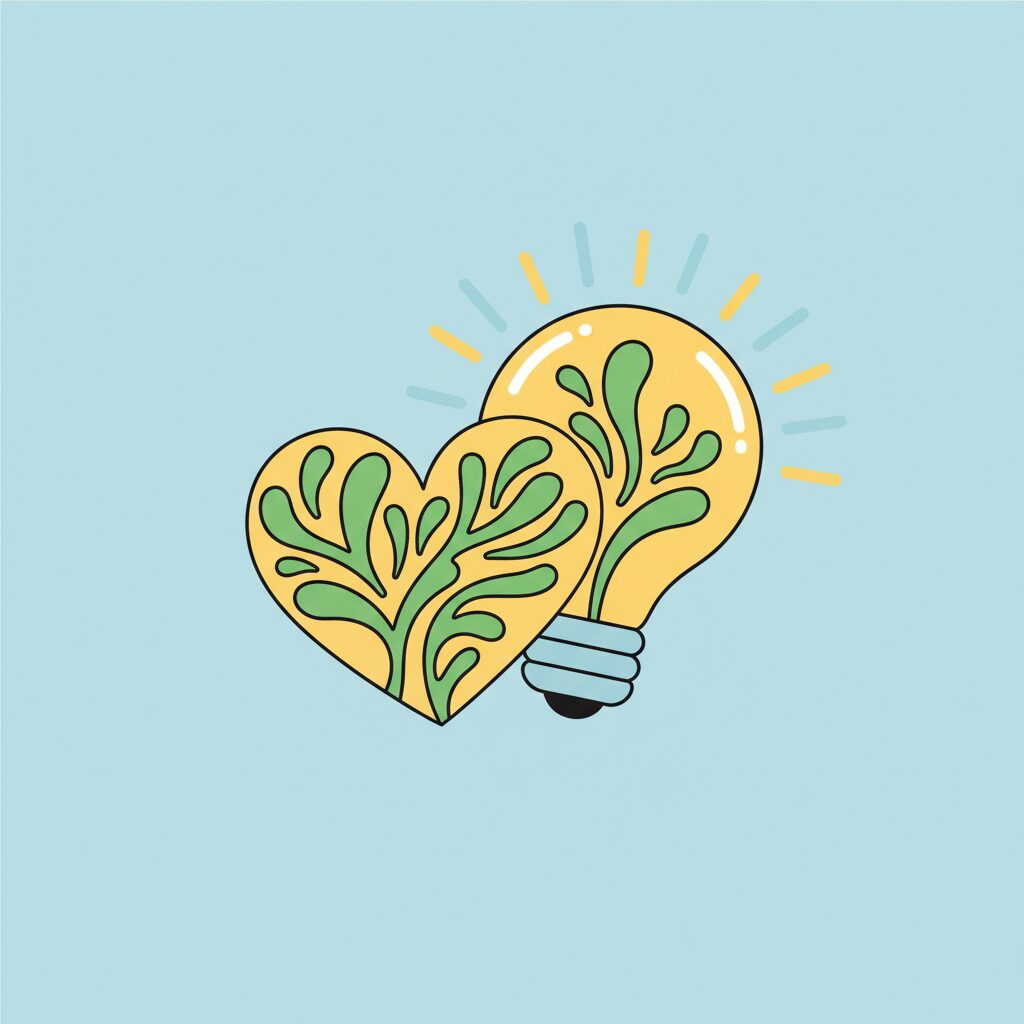
Picture this: the spontaneous laughter of a child discovering something new – that moment of pure joy that no algorithm can replicate. As amazing as AI technology becomes, there are certain qualities that can’t be replicated – at least not yet. Empathy, creativity, critical thinking, and emotional intelligence remain uniquely human. These are precisely the skills we should focus on nurturing in our children.
Think about the moments that define childhood – the spontaneous laughter, the creative breakthroughs during play, the empathy shown when a friend is hurt, the curiosity that drives exploration. These experiences shape who we become in ways no algorithm can replicate. Even as our children grow up in a world increasingly populated by AI, they’ll need these human skills more than ever.
For successful parenting in the AI age, balancing technology use with hands-on experiences becomes crucial. When my daughter and I build with blocks, paint pictures, or explore nature together, we’re engaging in activities that develop creativity and problem-solving skills in ways that complement – rather than compete with – technology. This balance will be crucial for our children as they navigate a future where digital twins might handle many aspects of work and daily life.
Studies suggest that successful solopreneurs in the near future will deploy AI clones to handle routine tasks, freeing themselves to focus on high-value work. For our children, this means the ability to think creatively, solve novel problems, and connect with others on a human level will become increasingly valuable – perhaps even defining their success.
How Do We Prepare Our Kids for a World with AI Digital Twins?
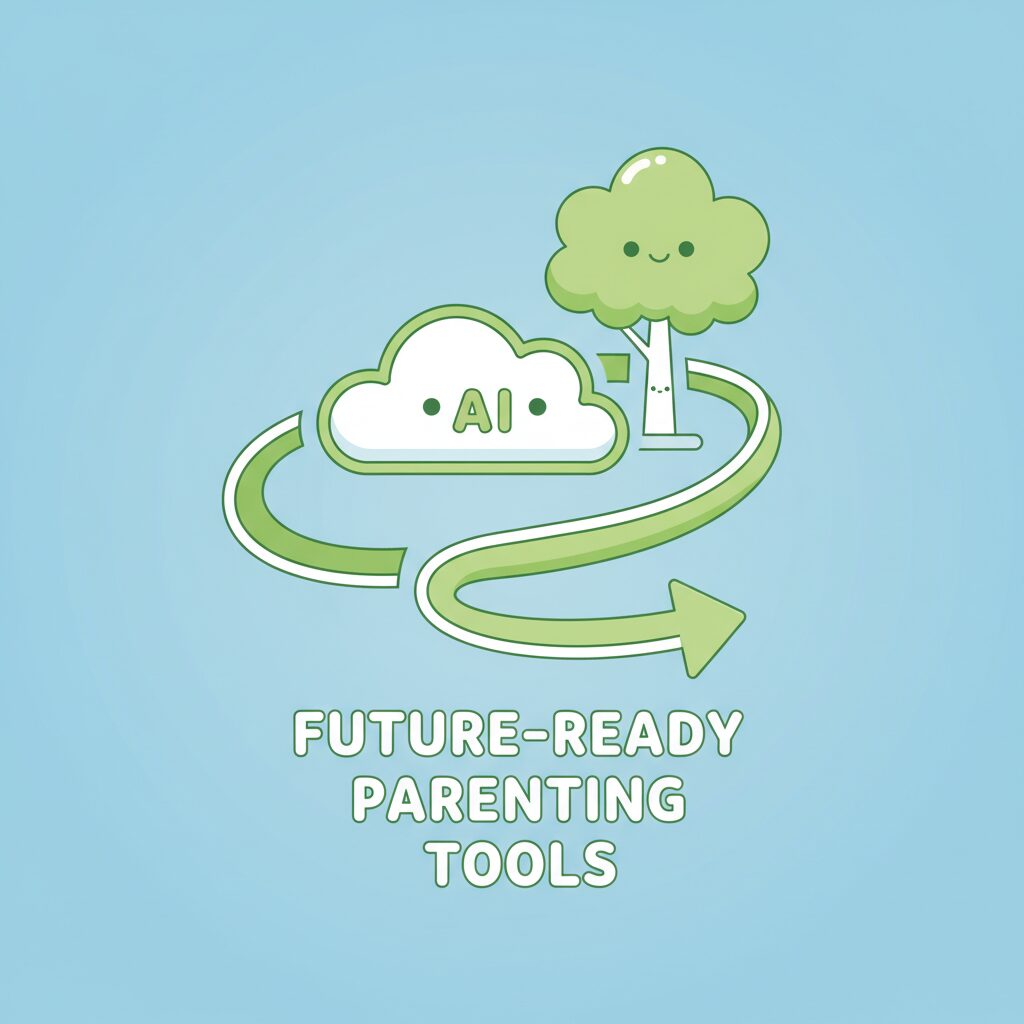
Picture this: your child confidently navigating a world where AI and humans collaborate seamlessly. So how do we prepare our children for a world where AI cloning might be commonplace? Effective parenting in the AI age starts with fostering digital literacy and critical thinking skills. We can help our children understand how AI works, what it can and can’t do, and how to use it responsibly.
Equally important is teaching them about boundaries and consent. In a world where anyone could potentially be cloned by AI, understanding who has the right to use our image, voice, and ideas becomes essential. These conversations might seem advanced for a seven-year-old, but they’re building blocks for navigating increasingly complex digital landscapes.
We can also encourage our children to develop their unique voices and perspectives. While AI can mimic style and tone, the originality that comes from lived experiences, diverse perspectives, and genuine passion can’t be cloned. By nurturing our children’s authentic selves, we’re preparing them to thrive in a world where digital replicas might be common, but genuine human connection remains precious.
Perhaps most importantly, we can model healthy technology use ourselves. When our children see us balancing screen time with real-world connections, using technology as a tool rather than a replacement for human interaction, they learn to do the same. This modeling will be more powerful than any lesson we could explicitly teach.
Can We Parent with Hope in an Age of Digital Replicas?
Now, considering these possibilities of AI and digital twins, how do we maintain hope for our children’s future? As I watch my daughter’s eyes light up with curiosity about the world, I’m filled with both excitement and caution about the future that awaits her. The age of AI cloning will bring remarkable possibilities – efficiency, accessibility, and new forms of creativity that we can barely imagine yet.
But it will also bring challenges that require wisdom, empathy, and a strong moral compass. By focusing on what makes us human – our capacity for love, creativity, and genuine connection – we can prepare our children to navigate this brave new world with confidence and compassion.
After all these considerations of authenticity, research, and ethical implications, my daughter reminds me what matters most through her simple questions about the world. She reminds me that while technology evolves, our fundamental need for connection and wonder remains unchanged.
As we prepare our children for these technological advances, how can we ensure they maintain their wonder and appreciation for the authentic moments that technology cannot replicate?
The rain outside has slowed now, and a rainbow appears in the sky. My daughter points excitedly, reminding me that even in a world of digital replicas and artificial intelligence, there’s something magical about the unexpected beauty of the natural world. It’s a good reminder that while we prepare our children for technology’s future, we must also help them cherish the irreplaceable wonders of being human.
Source: AI Can Clone Your Voice, Your Face and Even Your Insights — and Founders Are Already Using This Technology, Biztoc, 2025/08/29 14:51:25
